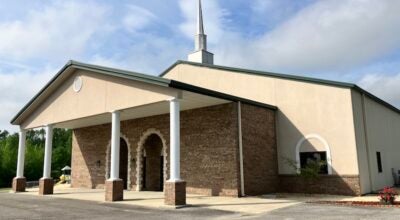Sen. Ward helps develop crime victim notification system
Published 8:58 pm Monday, October 20, 2014
Alabama crime victims will now have better access to information about the offenders who harmed them or their loved ones, as an innovative electronic notification system was unveiled at the State Capitol.
Members of the Task Force that have been developing “AlabamaCAN” (the Alabama Crime Victim Automated Notification system)demonstrated the public website at http://victims.alabama.gov, which is just one element of the project that maximizes today’s technology. With 1 out of every 4 citizens being a victim of crime in their lifetime, AlabamaCAN will be a valuable tool.
In 2011, the Legislature approved a bill sponsored by Sen. Cam Ward that outlined the requirements of the new notification system, and it established an Implementation Task Force that eventually included eight state agencies and two crime victim advocates.
Considered by many stakeholders to be the most significant crime victims’ legislation to pass in 20 years, the 2011 law primarily addresses how notice will be provided for upcoming parole/pardon hearings. But AlabamaCAN may one day extend further to provide notice at additional points in the criminal justice system.
“Protecting the rights of victims should always be the top priority of lawmakers,” said Ward, chairman of the Senate Judiciary Committee. “I am proud to have worked with victims’ advocates to pass this bill which will ensure that the victims of violence receive proper notification on the status of criminals who commit these terrible crimes.”
Since 1984, the Board of Pardons and Paroles has been required to locate victims of certain violent crimes (and/or immediate family members), and send notices of upcoming hearings via certified USPS mail, return-receipt requested.
As a result, victims have frequently appeared at hearings and voiced their concerns about an offender’s possible release or communicated their thoughts to the Board in writing.
But the 1984 law had its limitations. For instance, the first effort to locate a victim often occurred five, 10 or 15 years after a violent crime, when many names/addresses have changed. Therefore, numerous crime victims were not receiving notice, despite the Parole Board’s due diligence to locate them. And the 1984 law only required notice for the victim who was harmed (or the next of kin in a homicide), while violent crime often has a vast ripple effect that touches many family members and friends.
Each year, more than 6,000 parole hearings are held in Alabama.
The 2011 law creates a more efficient system that is available to additional victims and members of the public. Plus, probation officers will assist in capturing a victim’s contact information much earlier in certain cases, and will enter data in AlabamaCAN when defendants are sentenced. And, using the public website, victims are encouraged to keep their information up-to-date and choose how they want to be notified about hearings, as notice can now be delivered via email, text message or automated phone calls (but victims named in an indictment or next of kin in homicides may still receive notice via USPS mail).
Addresses can also be updated using driver’s license info, if the victim selects that feature. Or a victim may decide to “opt out” and not be notified of any future hearings.
Victims or others interested in more information on this revolutionary, user-friendly system can contact the Board of Pardons and Paroles at 334-353-7771 or visit http://victims.alabama.gov.






